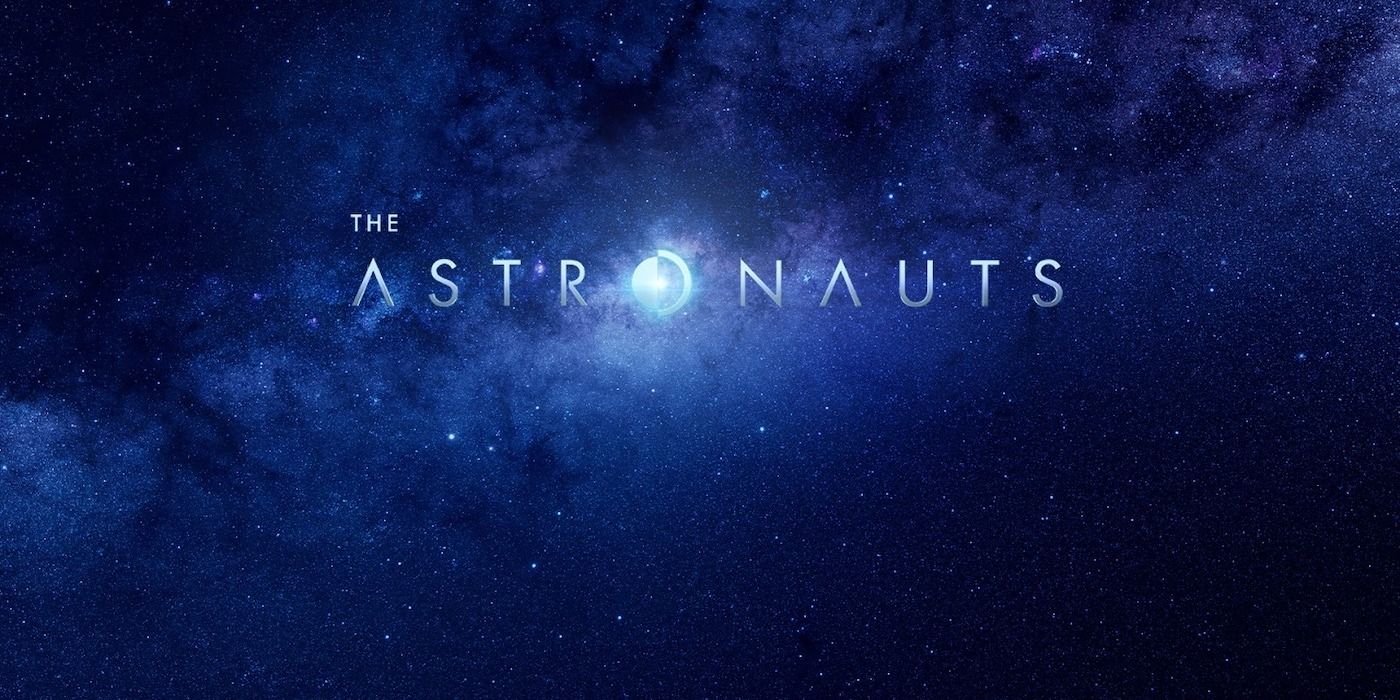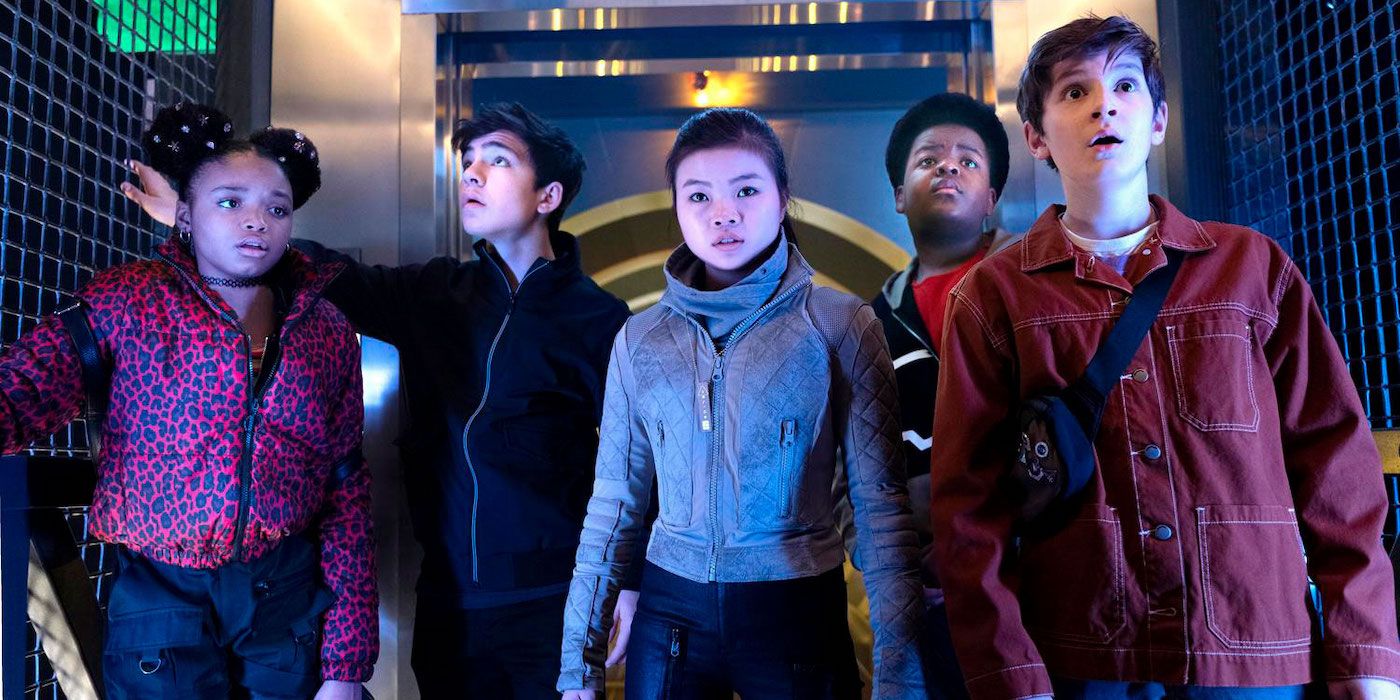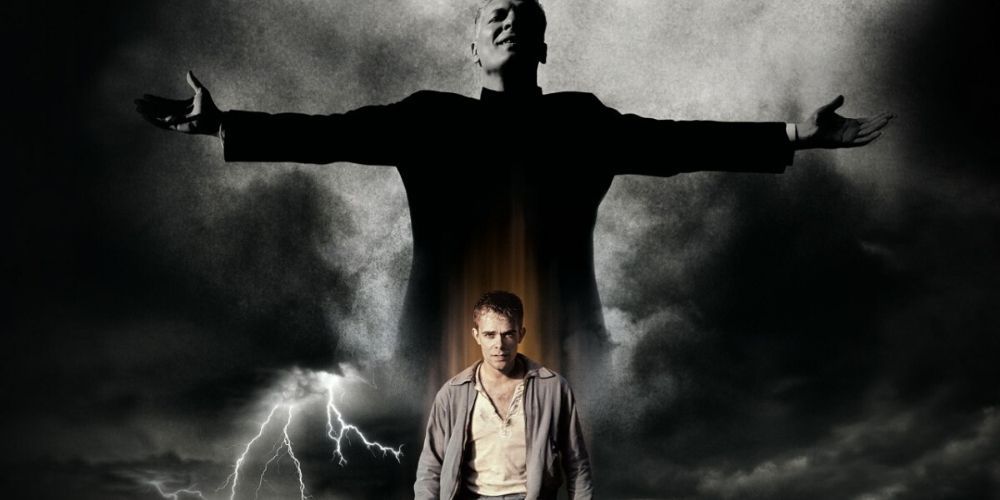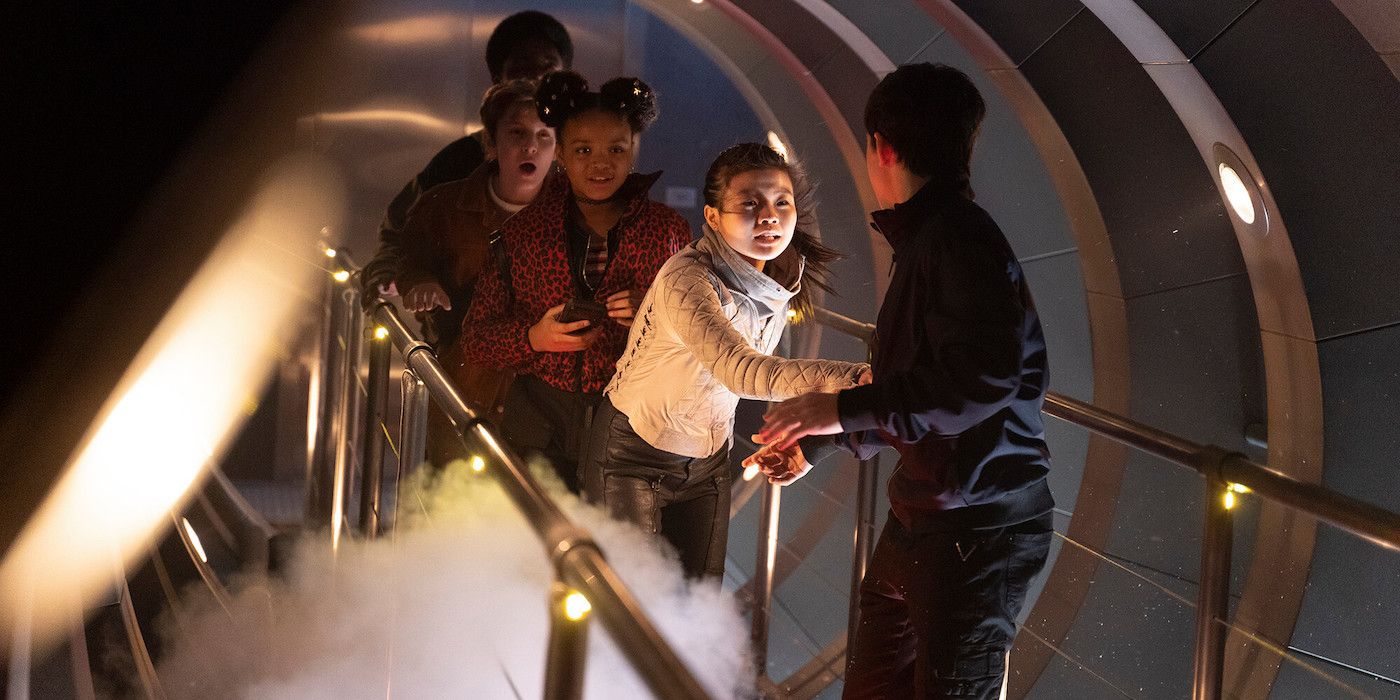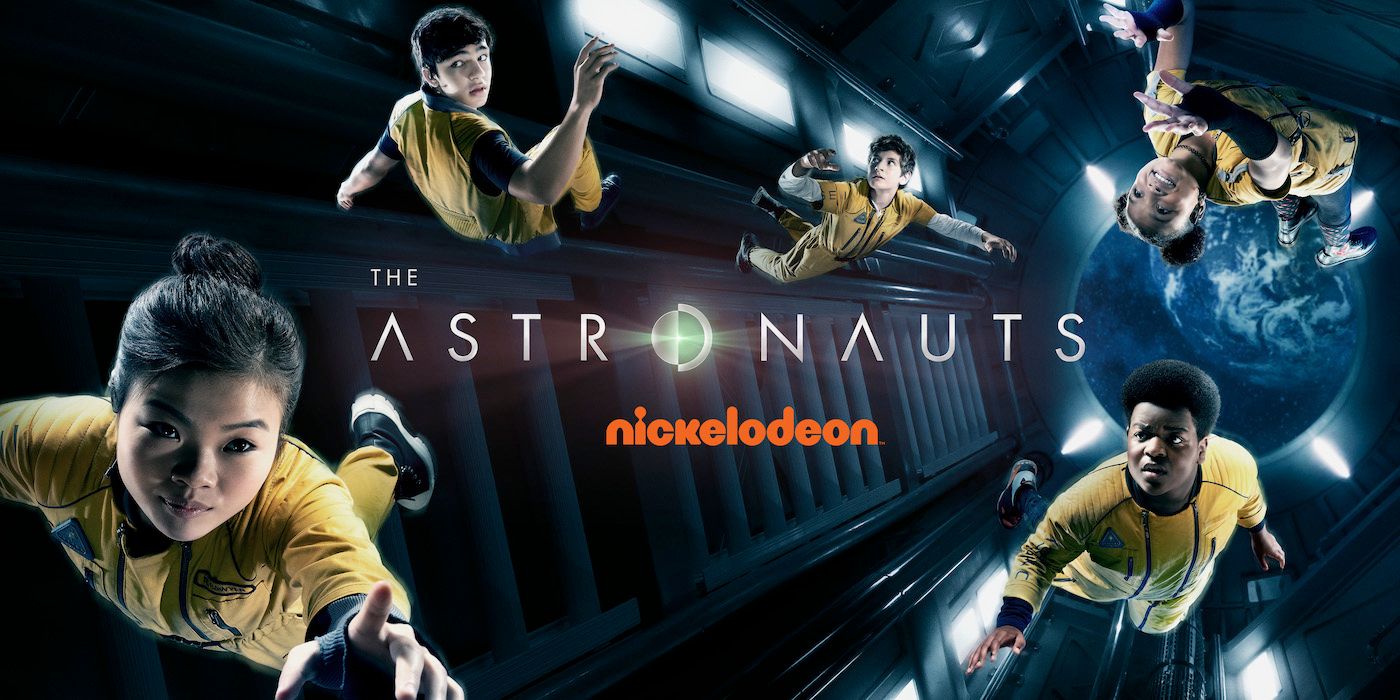Typically, writers in Hollywood work their way up from the bottom, eventually getting the opportunity to create a television project of their own. For Daniel Knauf, things didn't work out that way. After a made-for-TV "blind gunslinger" film, and a couple of other projects, he found himself as creator and executive producer of the HBO original series, Carnivàle. Though the series was unceremoniously cancelled after only two seasons (of a planned six), its layered storytelling and Lynchian sensibilities made Carnivàle into a cult classic whose popularity persists to this day. After years working on shows as varied as The Blacklist, Dracula, and Supernatural, Knauf is back with a brand new show, and Imagine Entertainment's The Astronauts marks something of a departure for the writer.
Unlike all of his previous projects, The Astronauts is a family show on Nickelodeon, targeting that network's tween audience. The science fiction series follows a group of children who are accidentally sent into outer space. As their parents look on from the mission control center, the kids have to survive and handle a variety of crises as they pop up. The Astronauts is a family program that doesn't talk down to the children and aims to thoughtful and engaging to parents, as well as younger viewers.
While promoting the release of The Astronauts, Daniel Knauf spoke to Screen Rant about his work on the series, as well as his life in the television industry. He talks about how TV was always his passion, but not his initial career choice, as he spent many years working a finance office job to pay the bills before finally turning to his one true destiny. He discusses The Astronauts and how important it was for him to make a show that appealed to both children and adults on different levels, so that two groups of people could watch the same episode and come away with important lessons and understanding of themselves, and their family. He also shares his satisfaction with working alongside the producers at Imagine Entertainment, Ron Howard's production company, and how he was pleasantly surprised when they brought the show to him to develop.
The Astronauts airs Fridays on Nickelodeon.
You've had such an interesting, atypical trajectory in the biz. Do you mind if we talk about that for a bit?
My weird career (Laughs).
I know a lot of people in jobs that are really tough, and they're doing what they can to get by, and I know a lot of rich young people who are artists, because one way to look at it is, pursuing art is a luxury that most can't afford. From what I understand, your story was, "Man, I want to be an artist, a writer, but I should probably get rich first."
(Laughs) Well, I got married really early. I was, like, 22 when I got married. And I had kids soon after that! It was like following the path of least resistance. When you're growing up, the hardest part about being an artist is... Well, artists are born. It's like a birth defect, you know? The hardest thing about it, and every artist I've talked to, it's true: the people who are closest to you, who love you the most, who really want to protect you, i.e. your parents, your family, they know it's a hard road. You really need a backup. Saying you want to be an artist is like saying you want to be the President of the United States. It's one of those things you want to be when you draw a picture of it in the first grade, know what I mean?
Yeah, sure!
Concern is a reasonable, responsible adult choice. And it's out of pure love. They're not trying to discourage you. I like to put it this way: you bring home a picture you drew at school when you were five years old, you get a pat on the head, mom puts it on the refrigerator door, and you're really proud of it. But then, around when you're 16 or 17, and you're still bringing pictures home, they start getting really nervous. (Laughs) Like, "Uhh, maybe we patted him on the head too many times. Maybe we knocked something loose!" So what happened was, I bought into that whole thing. I said, "Well, okay, I've studied English. I was a Creative Writing major in college, but that's just a no-go." My father had this business, a family business, so I decided to move into that. It really only took me about five years to go completely mad. I realized this was not for me. I put on the suit every day, and the tie, and it felt like a costume. I did the job, and I was good at the job, but it wasn't... I wanted to do this other thing.
You knew what your calling was.
I started taking one or two days a week where, after the kids would get put to bed, I would drive to the office because back in the early 1980s, it was the only place where you had a computer. I would just sit there and work on screenplays. I would go to the AFI alumni association, that was one of many writer workshop groups that was active in LA at the time. I'd go to that and take some classes at UCLA extension. I was basically... I was like, I want to learn this, and I want to learn how to do it really well. So I was focused on my craft in a vacuum, for almost 20 years! At a certain point, I thought, "Maybe it's about time to try and sell one of these things."
Was that your first TV show?
I had a sale back in the 1990s for a Western I did, that was released as Blind Justice, which was basically just a Western version of the Zatoichi movies. A blind gunslinger, you know? But then there was nothing. I sold something, and then nothing happened. I come from a really long line of sore losers. (Laughs) We're the people who flip the Monopoly board and throw the tennis rackets. So I thought, okay, well, I built websites for my business, let me build one for this. So I built a website in the late 1990s and posted the first acts of everything I had ever done. Somehow, the pilot for Carnivàle, and this guy, Robert Keyghobad, who was an assistant for Scott Winant, had gotten orders from his boss, that he was tired of cops, doctors, and lawyers, and he wanted something different. And he found this. Nowadays, you'll find spec screenplays all over the internet, but back then, there weren't that many. I got the call, I went in, and it became Carnivàle. My first real TV gig, I was the executive producer and creator of an HBO series.
Starting at the top!
And I've been working my way down ever since! (Laughs) No, it was really weird, though. I came out of nowhere. I hadn't done any TV, and nobody really knew who I was. Once Carnivàle went... We did really well with it, won some awards, and created an amazing, beautiful show, and once I came off of that, everybody was like... There was a rumor going around that I didn't exist, that I was a pseudonym for David Lynch. Which is really flattering, but bad for the brand, you know? (Laughs)
Oh, that's funny.
So I had to almost start out again, coming off of Carnivàle. The first gig I did after was, I did a freelance script for Supernatural. And then I started getting jobs on staff on various shows. Meanwhile, I was creating shows. I was basically doing all the stuff I did on Carnivàle, putting together spec pilots and spec bibles, all that stuff, going around and pitching stuff... My career's kinda funny, it's backwards, in a way. So I spent the last 20 years becoming a known quantity in the television community, and working with a lot of really good people. I didn't run another show until I did Dracula for NBC. I did a stint on Spartacus: Blood and Sand with Steve DeKnight, and The Blacklist. This is the first show I've created and run since Carnivàle.
It's the obvious successor. They're practically the same show.
Yeah, clearly! (Laughs) I've written in every genre there is. Most of it's been dark, adult stuff, and supernatural stuff with horror and so forth. Even The Blacklist is an adult procedural, I have no idea why Imagine called me and said, "We'd like to talk to you about this idea we have." It was the one thing I hadn't done, a family show. And it was the one thing I really kinda wanted to do! I've got five kids. I've raised a lot of children. I've raised children to adulthood, and it's a pretty bleak landscape out there, these days, for intelligent family drama. I thought, you don't have to go completely brainless just because you're doing a show for kids. Kids are pretty smart. I was a pretty smart kid, and my kids were pretty smart. I wanted to do something that a child, mom and dad, and grandpa can sit down on the sofa together and watch and enjoy, and enjoy for different reasons, and not feel ambushed. We're not going to be really snarky and attack some core value you have. You know, where you have to have that talk afterwards, with, "I know Belinda gets really sassy with her dad and it seems sassy on the show, but it really isn't funny at home." That kind of talk.
You nailed it right at the very beginning, when you described it as a family show, and not as a kids' show. That's such an important distinction that a lot of, quote-unquote, "people at the top," don't always understand.
Because of my delayed liftoff in this business... I was a consumer of this product for over 40 years before I turned into Walter White and started making the product myself. As a consumer of the product, I understand the relationship people have with their television sets. That's something a lot of people who come into the business right out of film school don't really know, and a lot of executives don't seem to know that. Fortunately, the people at Imagine, they do. They understand that it's all about the characters. Kids are the same as adults. Writing for kids is not that different than writing for adults. You don't dumb anything down. We take some really deep dives on this show.
And you got people like Dean Israelite and Jonathan Frakes to direct. I imagine they're not going to phone it in because many of the viewers aren't in high school yet, right?
These guys make their decisions off of the scripts. When I wrote the pilot, it was, like... I think they responded to the quality of the story and characters. We have a lot of people who came in, other directors of a pretty high profile, before we decided on Dean. I was actually very flattered by how many people were vying for the spot to direct this thing. I think it's a ridiculous cliche, but the truth is, it all starts with the script. I think we developed a really good script. That's what drew the talent in. Plus, they knew, with Imagine, they've got such a stellar reputation. They're such nice people over there! A lot of it, too, is "What am I working on, and who am I working with?" Their reputation is very artist-friendly.
At Imagine, you mean?
You walk into the Imagine offices, and there's a whole wall that's papered with pages from scripts. To me, that says a lot about that organization.They understand the foundation, that everything comes from the written page.
I love the way your work... Wait, let me figure out how to phrase this... It's set in the world of storytelling, not the world we're stuck in.
There's a little bit of world building going on here, but the world... It's almost like composing something for a string quartet. The world is inside that tin can of a spaceship, and mission control. It's the parents down on Earth, and the kids up in space. So it's a very compressed kind of world, you know? You don't know what's going on outside of mission control. You don't know what kind of issues society's dealing with outside of it. We don't go outside of mission control, and outside the ship. We're just dealing with this situation. One thing that really appealed to me about the concept is, I always wanted to do... Something you don't see too often is this process of individuation that everybody goes through, and how painful it is, not just for the child, but for the parent as well. And these kids are literally millions of miles away from their parents. We get to dramatize a bit of that, too. Like, "Dad's telling me to do this, but I know he's wrong, and we need to do that instead, but I have to disobey him to do that." In a lot of kids' dramas, that's short-handed as, "Wee! We're just gonna do what our parents told us not to do!" You know what I mean?
Totally.
Whereas, our kids really struggle with this, you know? Because the stakes are so high. And we really wanted to ground it in reality. I think, whether a child decides to go out for a space walk against his parents' wishes, or deciding to not go out for football this year against his parents' wishes, those are gut-wringers, those decisions. It was a nice opportunity to be able to dramatize that.
The Astronauts airs Fridays on Nickelodeon.

